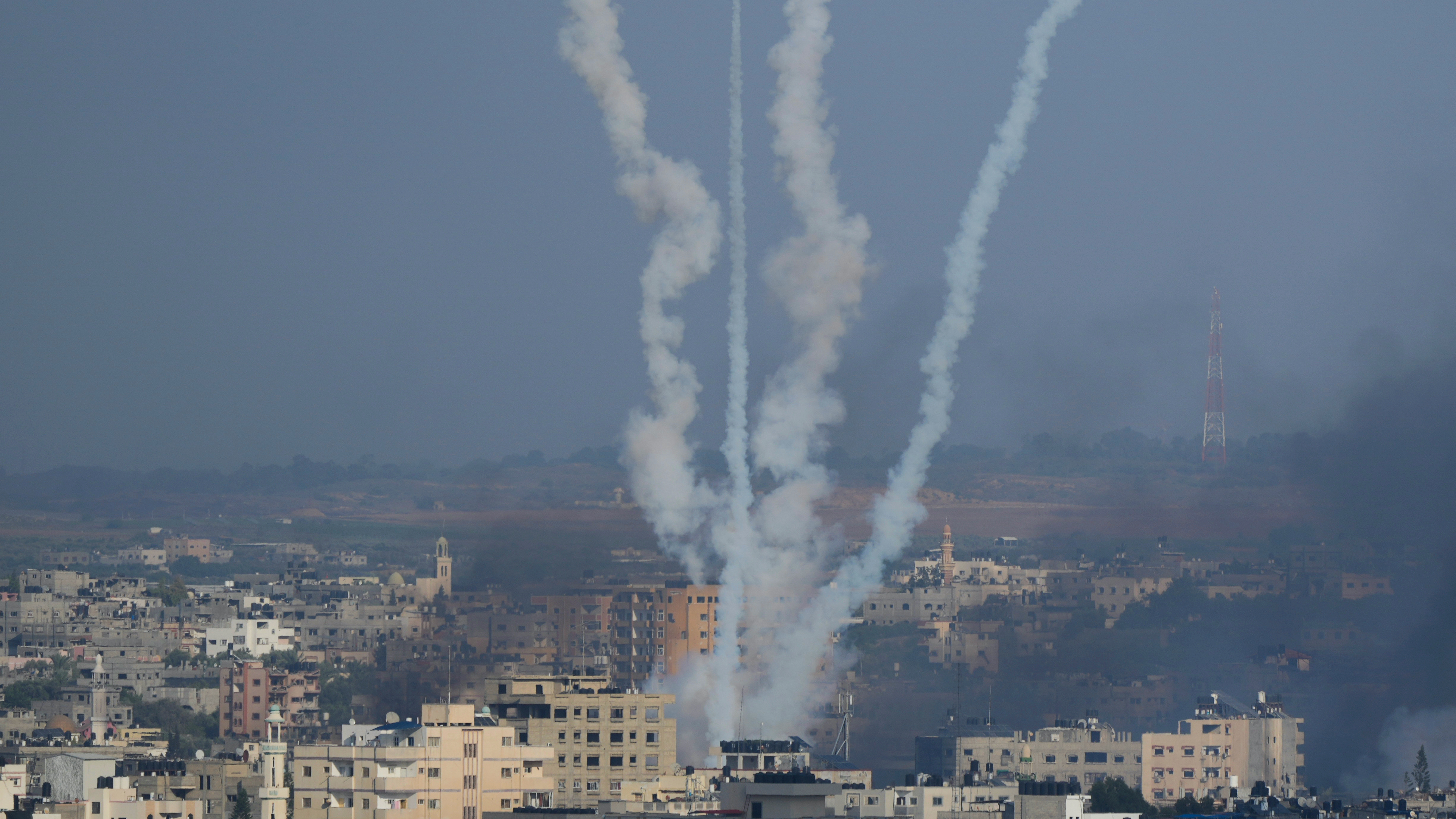Israel plans a ground assault in Gaza as Hamas holds a large number of Israeli hostages
One of the deadliest scenes from the Hamas attack over the weekend took place at a big outdoor dance party in southern Israel.
More than 250 people were killed and an unknown number were taken hostage by Hamas.
Antony Blinken met with some survivors of that attack on Thursday. And he told one of them — Lior Gelbaum — that he’s working to free the hostages.
“We’re thinking of them and trying to do everything we can,” Blinken said. “We want to bring them home.”
In many ways, Israel and Hamas have been here before. The two sides have fought four wars since 2006, the most recent in 2021.
But as Israel continues to conduct airstrikes inside the Gaza Strip, and hundreds of thousands of Israeli troops gather along Gaza’s borders, they’re facing something different this time. And that’s the presence of more than a hundred Israeli civilians being held captive in Gaza.
Israel’s minister of strategic affairs, Ron Dermer, speaking with Bloomberg news, said that Hamas made a critical miscalculation with this recent attack.
“It may take some time, but we’re going to exact such a high price that not only will Hamas never consider doing this again, I think none of Israel’s enemies are going to ever think about doing something like this again,” he said.
The assumption is that Hamas took hostages as bargaining chips with the intention of exchanging them for thousands of Palestinians held in Israeli jails.
Among the hostages now in Gaza are women, children and elderly people.
Hamas has said it will start executing them one by one if Israel bombs Palestinian homes without warning.
Moran Zaga, an expert on the Gulf Arab region with an Israeli think tank called Mitvim, talked about what she makes of that threat by the leaders of Hamas.
“They’re a vicious, violent organization and I take it very seriously.”
Zaga said there is a diplomatic effort getting underway to free Israeli hostages. And it’s being led by Qatar, a country that has no official relationship with Israel.
“Only Qatar has its direct and very close connection with Hamas. That’s why it has its leverage more than Egypt and other countries who are trying to mediate themselves,” she said.
Qatar helps fund Hamas in Gaza. It also hosts the leaders of Hamas’ political wing.
Zaga said it’s not clear how much leverage they have over the Hamas military commanders inside the Gaza Strip.
“The question is whether they listen now to their political leadership that is based in Qatar,” she said. “That’s the key issue here. And if so, then I’m very hopeful that Qatar can achieve some sort of settlement through its influence on the political leadership.”
On Thursday, Qatari Emir Tamim bin Hamad al-Thani was on an official visit to Germany, where the government is calling on Qatar to help free the hostages held by Hamas.
Gilead Sher is an Israeli lawyer and former senior negotiator in the peace process with the Palestinians. He said that Hamas is violating international law by not disclosing the identity, location or health condition of the hostages.
“There’s also a real fear that Hamas will treat the Israeli abductees with other Palestinian terrorist organizations. It has already announced that 30 of them have been handed to the Islamic Jihad,” said Sher, who is also a fellow in Middle East Peace and Security at Rice University’s Baker Institute.
Zaga said that public debate in Israel about the hostage situation has been relatively muted.
“I think that the reason that we do not discuss this in Israel to a greater extent is in not to limit the military or a military operation.”
Zaga said it’s been disappointing, from Israel’s perspective, to hear almost no public support from some of its Arab neighbors.
Bahrain and the United Arab Emirates normalized relations with Israel three years ago.
And more recently, the Saudi government has been talking with the Biden administration about following suit.
Both the United Arab Emirates and Bahrain updated official government statements following the attack by Hamas that denounced the kidnapping of civilians from their homes.
Our coverage reaches millions each week, but only a small fraction of listeners contribute to sustain our program. We still need 224 more people to donate $100 or $10/monthly to unlock our $67,000 match. Will you help us get there today?
